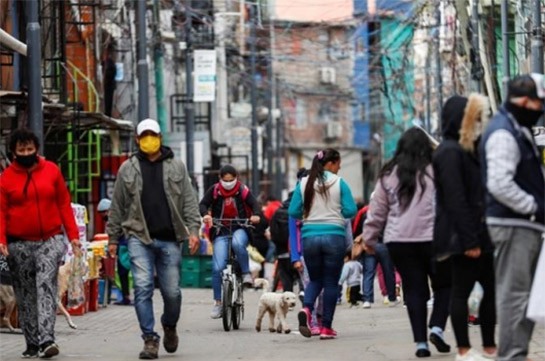
24/02/2021 16:24
Novel coronavirus strains continue to spread worldwide, WHO says
A more contagious coronavirus strain VOC 202012/01 that was initially detected in the UK, has been reported in seven more countries over the past week, bringing the total to 101. The 501Y.V2 strain, first detected in South Africa, has spread to 41 countries, and the P.1 strain that was first registered in Brazil and Japan has spread to 29 countries, the World Health Organization (WHO) reported in Geneva on Wednesday.
Its weekly epidemiologic update notes that the VOC 202012/01 strain "has been detected in seven additional countries. As of February 23, a total of 101 countries across all six WHO regions have reported cases of this variant." At the same time, "community transmission" of this strain has been reported in at least 45 countries. The share of infections with this strain has grown since January, for instance, in Europe.
As for the 501Y.V2 coronavirus strain, since February 16 it has been detected in another five countries with their total number reaching 51. "Recent preliminary evidence suggests that variant 501Y.V2 may compromise immunity indicating potential increased risk of reinfection. There is now growing evidence that the mutations present in this variant may help the virus evade immune system responses triggered by previous infections of SARS-CoV-2 or by vaccines," the WHO stated.
The P.1 strain has spread during the past week to eight countries, bringing the total to 29.
In January, the WHO said that the emergence of these novel variants of the coronavirus was expected since viruses tend to change constantly. On January 14, the WHO Emergency Committee during its meeting urged countries to expand their research of genome sequencing of the mutating coronavirus agents as well as share the data with other states.
According to the WHO, the VOC-202012/01 variety of the coronavirus appeared in the UK last September. The 501Y.V2 strain has been present in South Africa since early August while the P.1 strain has been circulating in Brazil and Japan since December.








